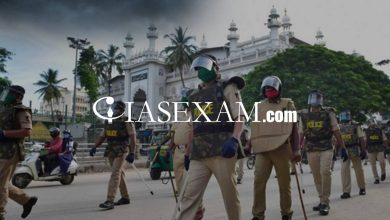Delhi placed under National Security Act for 3 months amid CAA protests
Lieutenant Governor (LG) Anil Baijal has granted the power of detaining authority to the Delhi Police Commissioner under the National Security Act (NSA), according to a notification. The NSA allows preventive detention of an individual for months if the authorities feel that the individual is a threat to the national security, and law and order, sources said.
In exercise of the powers conferred by sub-section (3) of section 3, read with clause (c) of Section 2 of the National Security Act, 1980, the Lt Governor is pleased to direct that during the period January 19 to April 18, the Delhi Police Commissioner may also exercise the powers of detaining authority under sub-section (2) of the section 3 of the aforesaid Act, the notification stated.
It comes at a time when the national capital has been witnessing a number of protests against the Citizenship Amendment Act (CAA) and the National Register of Citizens (NRC). However, the Delhi Police said it is a routine order that has been issued in every quarter and has nothing to do with the current situation.
About the CAA Protests
The Citizenship Amendment Act protests, also known as the CAA and NRC protests, the Citizenship (Amendment) Bill and National Register of Citizens protests, or the CAB and NRC protests, are a series of ongoing protests in India, against the Citizenship (Amendment) Act (CAA), which was enacted into law on 12 December 2019, and against proposals to enact a nationwide National Register of Citizens (NRC). The protests began in Assam, Delhi, Meghalaya, Arunachal Pradesh, and Tripura on 4 December 2019. In a few days, the protests spread across India, though the concerns of the protesters vary.
The Amendment benefits Hindu, Sikh, Jain, Buddhist, Christian and Parsi refugees from Afghanistan, Pakistan and Bangladesh who sought refuge in India before 2015; the Amendment leaves out Muslims and others from these countries, as well as refugee Sri Lankan Tamils in India, Rohingyas from Myanmar, and Buddhist refugees from Tibet. The proposed National Register of Citizens (NRC) will be an official record of all legal citizens of India where individuals would have to provide a prescribed set of documents issued before a specified cutoff date for inclusion in the register. The exercise of the NRC has already been carried out in the state of Assam. Those who fail to qualify for the NRC will be able to avail the benefits of the CAA if they claim to be religious minorities fleeing persecution from the listed countries.
SOURCE: The Hindu, Livemint





.png)



